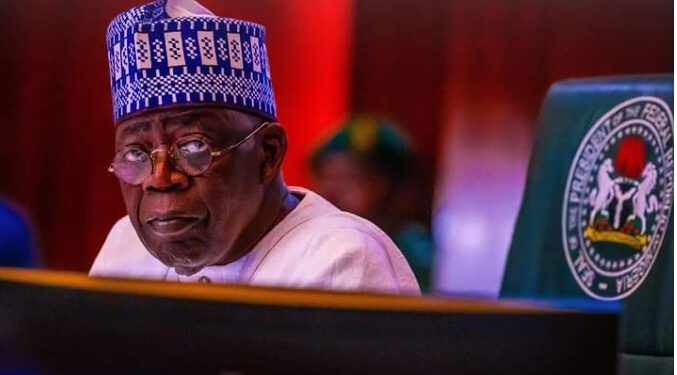President Bola Tinubu unveiled a groundbreaking N27.5 trillion budget for the fiscal year 2024 during his appearance at the National Assembly on Wednesday.
Accompanied by ministers, aides, and senior officials, this marks Tinubu’s inaugural full-year National Budget presentation since assuming office on May 29, 2023.
Tinubu’s budgetary proposal, a significant increase from the earlier N26.1 trillion estimate, paints a visionary picture for Nigeria’s economic trajectory.
Delving into the intricacies of the 2024-2026 Medium Term Expenditure Framework (MTEF) and Fiscal Strategy Paper (FSP), the President emphasizes a strategic expenditure plan to propel the nation forward.
The Federal Executive Council (FEC) had greenlit the ambitious N27.5 trillion estimate, reflecting a proactive approach to addressing the nation’s evolving needs.
Notably, this swift approval followed meticulous deliberations and interactions with heads of various Ministries, Departments, and Agencies.
Underlining the nation’s financial roadmap, the Senate’s Committee on Finance not only endorsed the proposed N26.1 trillion budget but also sanctioned additional borrowings amounting to N7.8 trillion.
Setting the stage for economic resilience, key parameters include an oil price benchmark of $73.96, oil production at 1.78 million barrels per day, and a projected budget deficit of N9.04 trillion.
Tinubu’s budget encapsulates a bold vision, featuring a GDP growth rate of 3.76%, an inflation rate of 21.40%, and a suggested benchmark exchange rate of N700 to $1.
These indicators collectively contribute to a comprehensive strategy aimed at positioning Nigeria as a formidable player on the global economic stage.
The President’s resolute commitment to steering Nigeria towards economic prosperity is evident in the meticulously planned budgetary allocations.
From prioritizing crucial sectors to strategic borrowings, this budget seeks to nurture progress and development on multiple fronts.











